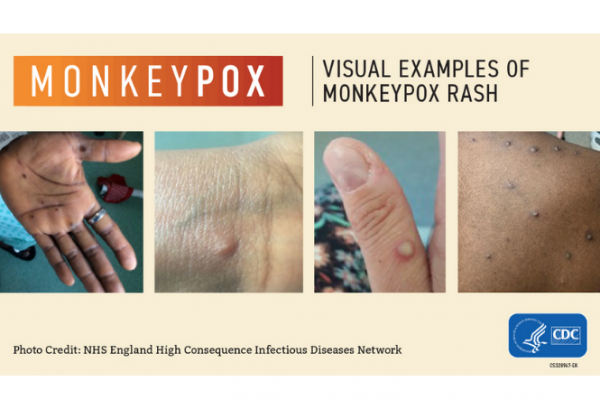Symptoms usually appear 1 to 3 weeks after you've been exposed to the virus. The first symptoms of mpox are often flu-like symptoms including:
- headache
- fever (temperature higher than 38°C)
- chills
- muscle aches
- backache
- swollen lymph nodes in your neck, armpits or groin (this is a symptom that differs from chickenpox)
- tiredness.
Most people will then get spots, bumps, blisters or sores appearing on their skin after a few days. These are known as lesions. Lesions can affect any part of your body including you face and mouth, arms and legs, genitals and anus.
 Image credit: NHS England High Consequence Infectious Diseases Network
Image credit: NHS England High Consequence Infectious Diseases Network
It’s possible to have lesions without other symptoms. The number of lesions varies from one or a few to many.
The lesions change by going through different stages, as chickenpox does. They start off flat then become raised and filled with fluid before crusting over and finally forming a scab that falls off. Mpox is diagnosed by swabbing these skin lesions for the virus.
The lesions are often painful and itchy. Your healthcare provider can give you some pain medicine to help with this.
You may also have pain, bleeding or an uncomfortable feeling in your nono or bum (anus).
The symptoms usually go away by themselves within 2 to 4 weeks. It’s usually a mild illness, but a small number of people become very unwell.



 Image credit: NHS England High Consequence Infectious Diseases Network
Image credit: NHS England High Consequence Infectious Diseases Network


